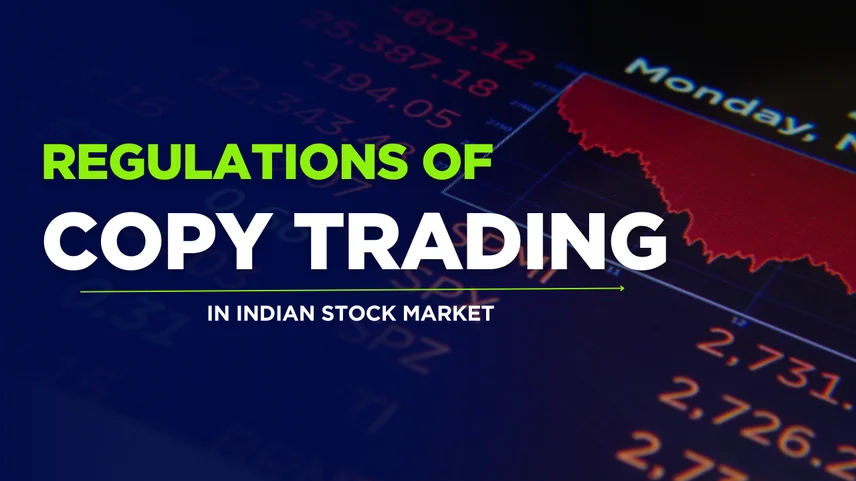
Copy trading is now becoming a popular method for investing in the stock market by Indian investors. Using sophisticated copy trading software, retail investor beginners can track and copy recommended trades provided by an experienced trader. Since the establishment of copy trading platforms in India, many traders are contemplating this mode of investing in stocks as compared to trading manually themselves. The important question is, is copy trading legal in India? Let's look at what the rules and regulations are regarding copy trading.
Copy trading is an investment method that links a trader's Demat account or trading account to a copy trading platform. The copy trading platform will automatically make the same trade with the follower's funds in their account that the expert trader makes in their account. This can save time, reduce decision-making pressure, and help market novices follow market strategies with minimum technical knowledge.
In India, all trading activities are regulated by the Securities and Exchange Board of India (SEBI). The current regulations state the following:
The Securities and Exchange Board of India (SEBI) has regulatory authority over all stock market activities including automated trading and copy trading. At present:
So, there is nothing that prevents investors from using copy trading software, but it has to be a SEBI-registered stockbroker such as Zerodha, Angel One/Alice Blue or Sharekhan.
Combiz Services Pvt Ltd and similar companies in the Indian market provide SEBI-regulated software and applications for copy trading services that connect with top brokers. The services they offer provide:
Thus, copy trading can be offered in a safe and transparent manner to new or experienced traders.
The recent increase in demand for copy trading services will potentially initiate regulators such as SEBI to explore regulations for social or copy trading platforms in India. The intent of regulations will be to provide:
Copy trading is a better way to trade with experts, but in the Indian context must also meet SEBI requirements. There's nothing wrong with copy trading; just choose regulated brokers and SEBI-approved copy trading software (like we provide through Incub8). As long as you comply with the requirements, you completely avoid any issues related to legal risks or security risks associated with copy trading programmes.